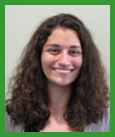
—
Today’s guest post is by Mohammad Yassin, a sophomore at DePaul University, studying in the College of Commerce. Mohammad serves on the E-Board of DePaul’s Muslim Student Association, United Muslims Moving Ahead (UMMA), and as an Interfaith Scholar. He is looking forward to occasionally writing for this blog about religious topics in order to help others learn more about Islam and other faith traditions.
—
Yes, you heard me right, Islam is not a religion. Why Not?!? Well, first let me introduce myself before I elaborate.
My name is Mohammad, and I’m currently a sophomore at DePaul University. I am a board member for my university’s MSA (Muslim Student Association) as well as an Interfaith Scholar in our University’s interfaith group (not including my other involvements on campus). Thus, when Nic gave me the opportunity to contribute to the DePaul Interfaith blog I found it very difficult to pass up. Continue reading








